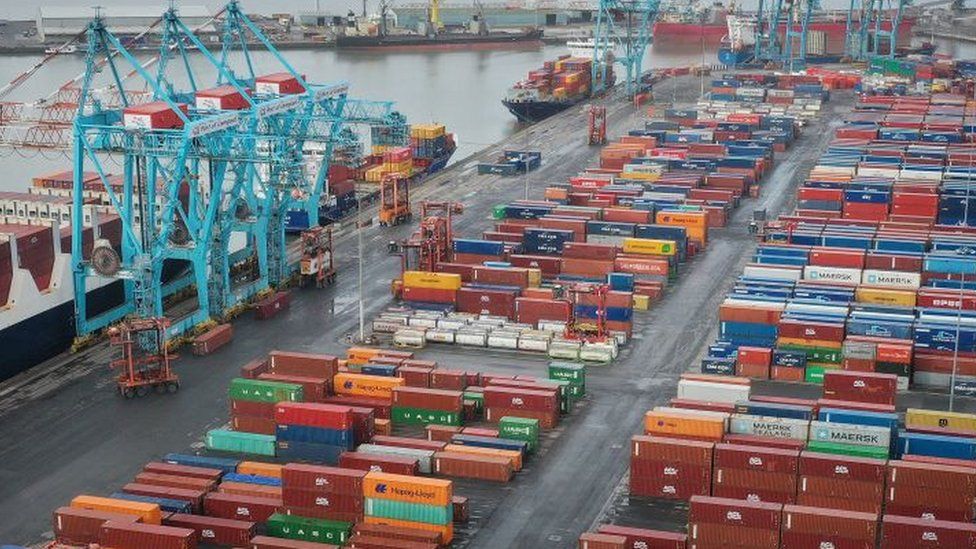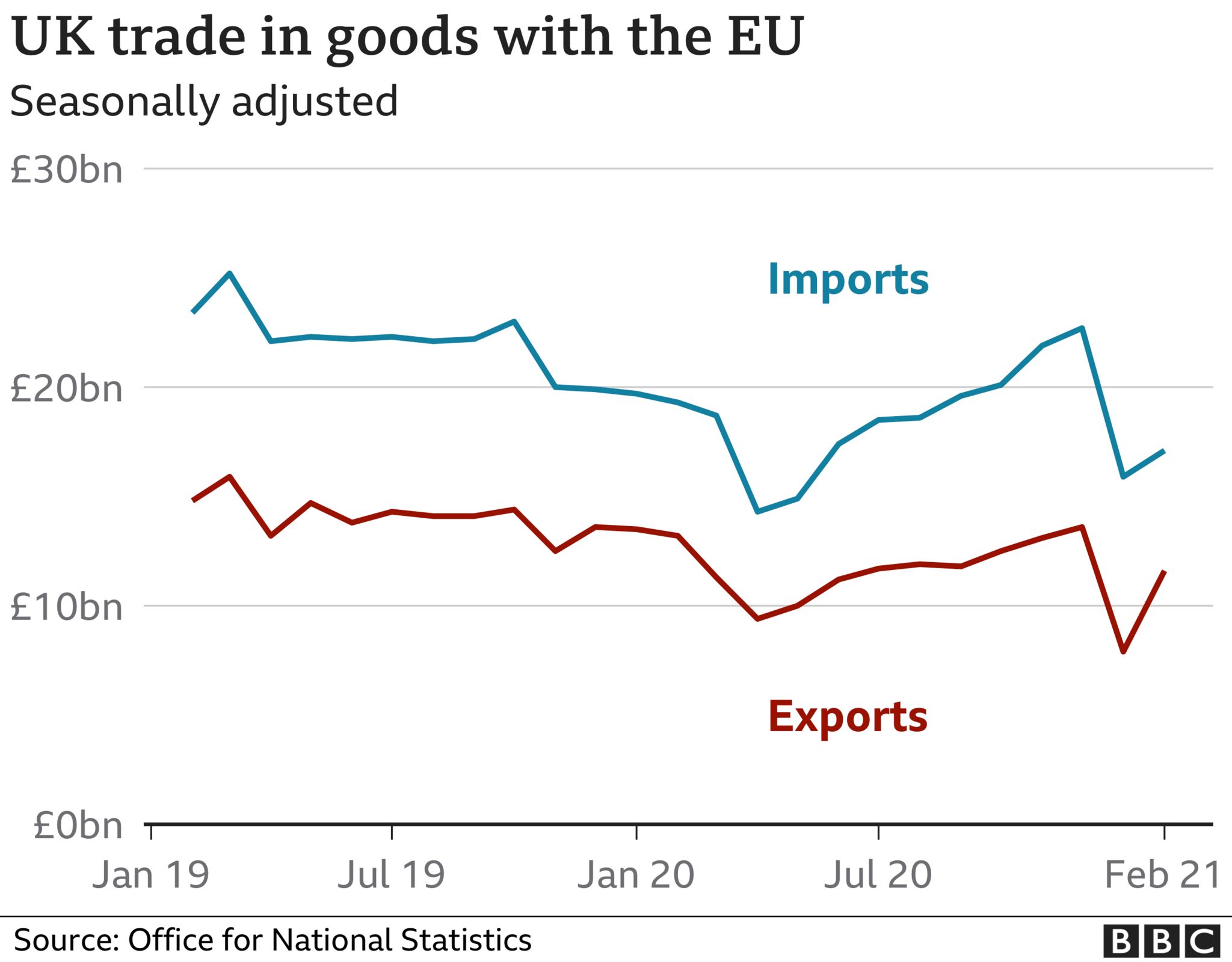UK exports to EU rebound partially after January's slump

Trade between the UK and EU partially recovered in February, after a steep drop in January following Brexit.
Official figures show exports to the EU jumped by 46.6%, £3.7bn, to £11.6bn, following January's 42% slump when firms struggled with new trade rules.
However, the Office for National Statistics said exports were still below last year's levels and imports from the EU had seen a weaker recovery.
Other figures from the ONS showed the UK economy grew by 0.4% in February.
The UK's statistics body said the economy was still 7.8% smaller than a year earlier, before the impact of the pandemic.
Covid restrictions remained in place to varying degrees across all four nations of the UK during January and February.
"The economy showed some improvement in February after the large falls seen at the start of the year but remains around 8% below its pre-pandemic level," an ONS spokesperson said.
"Exports to the EU recovered significantly from their January fall, though still remain below 2020 levels. However, imports from the EU are yet to significantly rebound, with a number of issues hampering trade."

UK imports from the EU rose by 7.3%, or £1.2bn in February to £17.1bn, after dropping 29.7% the month before.
The ONS said the export increases were driven by machinery, transport equipment and chemicals.
The ONS said it was too early to make any conclusions about the impact of the new trading arrangements with Europe.
Total imports of goods from non-EU countries rose by 10.2% to £17.9bn in February, while exports fell by 10.5% to £12.7bn.


After a 42% plunge in January in sales to the EU, February's bounce back of 46.6% is more the kind of figure the government would like associated with Global Britain's new trading era.
But just as the earlier figures weren't conclusive evidence that the new arrangements for trading with Europe posed a widespread sustained problem, the latest ones don't mean it's back to business as usual either.
Many companies avoided sending goods across the border in the previous month, for fear of disruption or delay, having shipped orders ahead of time where they could. Both January's fall and February's rebound were led by non-perishable items - chemicals, machinery - which are easily stockpiled . That trade resumed in February, while many other exporters managed to get to grips with the new formalities.
But export levels remain below where they were for much of 2020, and anecdotal evidence suggests some exporters - particularly those of fresh foods - remain overwhelmed by the new checks and forms. They are urging the government to help simplify processes. Meanwhile the pandemic continues to weigh on demand.
With the EU typically buying more than two-fifths of British exports, tackling remaining issues will be instrumental to getting the economy back on its feet.

Confidence 'picking up'
Sarah Hewin, from Standard Chartered Bank, told the BBC's Today programme the outlook for the UK economy was improving.
"Confidence does seem to be picking up as vaccinations are spreading. We know households have built up their savings in many cases during lockdown. As lockdown restrictions are eased people are going to be able to go out and spend those savings and that will be a big boost to the economy.
"As we saw from the scenes yesterday people are keen to get out and spend when they can. There will be more opportunities for travelling and going on holiday and spending in restaurants and pubs will see people spending to go out and enjoy themselves."
The latest ONS data also indicated that the economy did not shrink by as much as initially estimated in January. The statistics body said gross domestic product (GDP) fell by 2.2% in January, an upward revision from its original estimate of a 2.9% drop.
"A slightly improved January data could mark the final contraction in the current crisis, with the economy beginning to gather strength even before the end of the lockdown," said Yael Selfin, chief economist at KPMG UK.
Rory Macqueen, principal economist at the National Institute of Economic and Social Research, said: "Clearly much of the economy has adapted to cope with Covid-19 restrictions... if the vaccine programme and lifting of restrictions continue on schedule this provides a firm basis for continuing growth in the second quarter and 2021 overall."

April 13, 2021 at 09:28PM
https://www.bbc.co.uk/news/business-56729631
Labels: BBC News

0 Comments:
Post a Comment
Subscribe to Post Comments [Atom]
<< Home